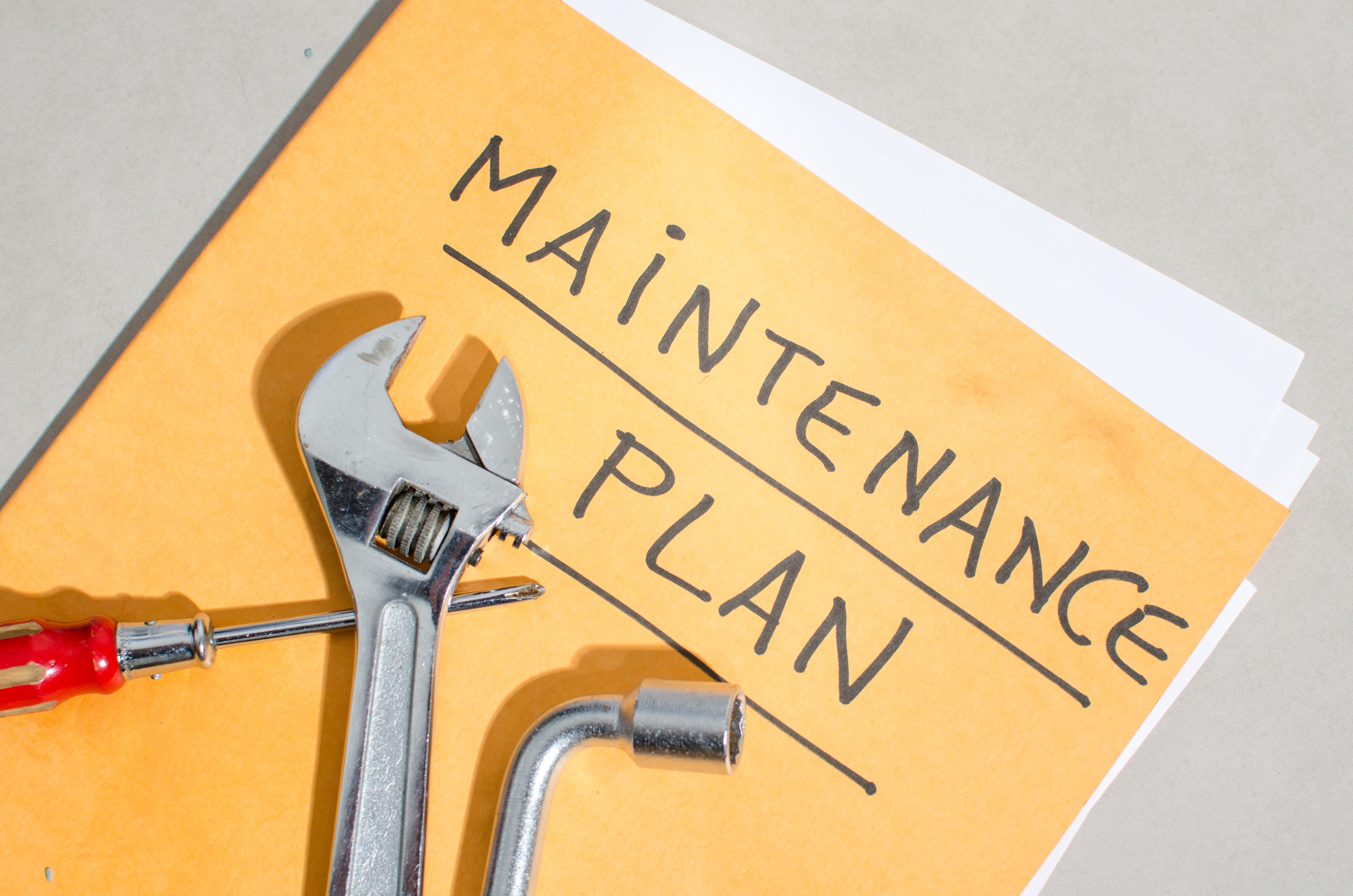When it comes to rental property maintenance, you can empathize with a landlord who takes the attitude of “If it’s not falling down or on fire, it can wait.”
After all, maintenance is a hassle and costs can balloon out of control. There’s probably a mortgage to pay, and landlord margins can be slim enough as it is.
But there’s a reason they call it “preventative maintenance.” You’re doing something unpleasant now to prevent something even more unpleasant in the future. That future disaster could be a major system failure that costs a fortune to correct, or the landlord being forced to accept a sales price far below market.
To recap, there are three types of maintenance:
- Deferred Maintenance — maintenance that a landlord really should have taken care of earlier. It might be more costly than it had to be, but it has to be done now to prevent a more serious problem.
- Routine Maintenance — maintenance that becomes necessary as problems arise.
- Preventative Maintenance — maintenance that gets performed when nothing is visibly wrong or broken, but it helps preserve the property and prevent more costly repairs in the future.
Here are seven property systems that landlords must target for preventative maintenance …
1. HVAC
Replacing an HVAC system is expensive, and almost entirely preventable. Basic maintenance, an HVAC system can add years to its life, warding off costly repairs.
Have a contractor look at your HVAC system in the spring and the fall. This will give you the advantage of lower prices during the contractor’s off-season, and to prevent those costly contractor calls in the summer and winter when every HVAC malfunction is an emergency and the contractors are booked up.
HVAC systems don’t just need to be maintained from the outside, though. Dirty interior A/C filters cause the HVAC system to work harder for fewer results, ultimately resulting in an early demise of the unit.
You can combat this by requiring in your lease agreement that your tenant change the air filter once a quarter. You can even provide the filter. Alternately, you could schedule your maintenance team to enter the unit and make the change, and to check the status of the filter during quarterly inspections.
2. Gutters
Maintaining your gutters is really about maintaining your foundation. If your gutters and downspouts don’t divert rainwater at least six feet away from your foundation, water can seep into the concrete and cause cracks, destabilizing the very floor your tenant walks on.
Foundation failures are some of the most costly failures to correct on a structure. Compared to a foundation repair or replacement, making sure your gutters function properly is the bargain of the century.
Have a professional check your gutters late in the fall, after any leaves have fallen from the trees. The contractor should clear out any debris, make sure the gutter is securely fastened, and the drains unimpeded.
3. Dryer Vent
Dryer vents have a tendency to collect lint. When lint gets heated or exposed to sparks or flames — as can happen with a gas or electric clothes dryer — it can have a tendency to catch on fire. Thousands of properties suffer fire damage every year from improperly-tended dryer vents.
Check the dryer vent once a quarter for lint buildup and clear it out. As an added bonus, the dryer will do its job more efficiently, preventing the need to run up the electric bill with repeat cycles.
4. Trees
Trees make a property beautiful, but they also incur serious liabilities. Dead, dying, or overtaxed tree branches can fall on the property, tenant automobiles … even the tenants themselves. Tree maintenance is one of the most important items to include on your preventative maintenance checklist, for the safety of your tenants as well as your bottom line.
Invite an arborist to walk your property once a year to look for trees that pose potential hazards. The best time is the fall or the spring before branches can be weakened by winter storms or after they get weakened by the weight of snow. Have weakened or threatening branches trimmed away and dead or threatening trees removed.
5. Hot Water Heater
The hot water heater is another appliance that tends to break sooner than it has to due to deferred maintenance.
The primary culprit is sediment that builds up in the pipes over time, making it work harder to circulate water until it breaks down. This is an especially big problem if your utility company supplies “hard water,” laden with minerals.
This is an easy fix. Just turn off the water heater and drain all the water out of it once a year. This simple step can add decades to the life of a quality water heater.
6. Caulking
Crumbling caulk not only looks ugly. It also threatens the integrity of your property. Cracked caulking is a point-of-entry for moisture, which can cause rot, mold, and damage to every property system it gains access to.
Worst of all, caulk does not last very long. Send a contractor through your property at least once a year to re-caulk any seals that have begun to deteriorate. Check the windows, doors, toilets, showers, sinks … everywhere caulk is to be found, check it!
7. Plumbing
Plumbing leaks are like a leak in the landlord’s bank account. Once a year, check every connection in the plumbing system for leaks. Slow leaks could go unnoticed for years, only to explode into full-blown plumbing catastrophes. They are much more manageable if they get caught early.
If you have a septic tank, it must be drained at least once every five years, but consider draining it sooner to prevent a stinky septic nightmare. If you have a basement, have your plumber check the sump pump once a year to make sure that it is in shape to drain the basement in the event of flooding.
Preventative maintenance comes with a cost — in money, in time, in resources. But it’s well worth it. With scrupulous preventative maintenance, you can head off disasters, guard your replacement reserves, and live the landlord dream of cash flow, appreciation, and prosperity.
Want a personal consult on your real estate investment goals?
You can start by scheduling your PROPERTY PROFITS STRATEGY SESSION.
In This FREE 1 Hour Session, an expert real estate investment coach from our team will work personally with you to...
- Examine your current real estate investment portfolio/plans to see what’s working and what’s hurting. Discover where you’re making money and losing it.
- Search for the diamonds in your backyard, the low-hanging profit opportunities that can be made with minor tweaks.
- Diagnose the biggest roadblock to scaling your business fast and profitably.
- Present the best path for tweaking your investment game-plan so you can build wealth faster, with more predictability and stability.






